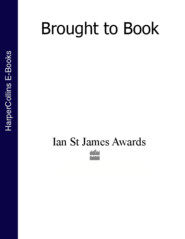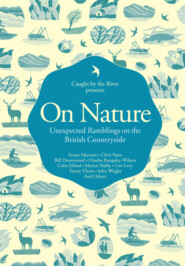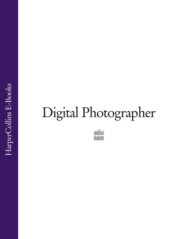По всем вопросам обращайтесь на: info@litportal.ru
(©) 2003-2025.
✖
In God’s Hands: The Spiritual Diaries of Pope St John Paul II
Автор
Год написания книги
2019
Настройки чтения
Размер шрифта
Высота строк
Поля
Evening meditation: Retreats grow out of the entire network of problems and tasks of the universal Church and the Polish Church. Retreats also have to be somehow rooted in these matters. They cannot lead away from the episcopal mission, but have to lead ever deeper into it. Among those tasks the one that has priority in our region is Catholic upbringing. Due to the present threats, one needs a stronger affirmation (statement). This affirmation takes shape in both the Holy Year’s theme, ‘Reconciliatio’ [‘Reconciliation’], announced by Pope Paul VI, and even more in the upcoming Synod of Bishops on the theme of ‘Evangelisatio’ [‘Evangelisation’]. These topics mutually explain and direct each other. A plan outlining them for the Church in Poland and in the Archdiocese needs to be prepared.
This matter has to be connected with the general issue of Catholic culture in Poland, especially the contribution of Catholic scholarship (and church scholarship: theology) to Polish scholarship (the feast day of St John Cantius: 500th anniversary of his death).
Rosary (I)
(Reading a chapter from the book): Maryja nasz wzór [Mary: Our Role Model] by Fr F. Ziebura
Supper, followed by: Matins for the Feast of St Lawrence
Holy Hour: contemplatio Xti in Monte Oliveti sec. misteria ros. cor. II: ubi veritas iustificationis invenitur sub diversis aspectibus [contemplation of Christ on the Mount of Olives according to the Sorrowful Mysteries: where the truth of justification is revealed in diverse ways]
Compline
Finally, reading the article: ‘Sumienie a autorytet’ [Conscience and Authority] by Fr Dr S. Rosik (Studia theol. varsav.)
10 August: Feast of St Lawrence, deacon and martyr
Getting up about 6.00 a.m. and first prayers according to the morning intention; (Short) meditation before the Holy Mass on the readings on St Lawrence from the breviary and preparation for the Mass; Holy Mass for the Feast of St Lawrence (ad peccata remittenda et conversionem semper pleniorem obtinendam infra haec exercitia [for the forgiveness of sins and for an experience of an ever-fuller conversion during this retreat]); Afterwards: thanksgiving; Lauds; Rosary (I) (petitionary prayers); Prayer to the Holy Spirit
Reading: ‘Die Mitte der Botschaft. Jesu Tod und Auferstehung’ [The Centre of the Good News: Jesus’ Death and Resurrection] by Jacques Guillet in ephem. [in the journal] Communio (Inter. Theol. Zeitschrift).
Meditation: De mysterio Patris [On the mystery of the Father]: (cf. Mystère du Père [The mystery of the Father] by Fr Guillou read over the holiday).
The analogy of fatherhood/father that is given to us in the created world is simultaneously rich and multidimensional, and limited and disproportionate in relation to the reality of the ‘Father’ in God. God to some extent identifies with the Father, but at the same time He exceeds everything that we can conceive of ‘fatherhood’ in created reality, especially in human reality. The father is the one who gives life, who passes on humanity and allows it to develop, the one who is the point of reference for the child, the equivalent of the certainty of existence and goodness.
And yet Jesus did not hesitate to speak of God as the ‘Father’
Father–God is essentially impermeable in terms of the world and creation. He is the mystery that lies beyond everything and that determines everything. This mystery is illuminated in relation to one point of reference: This point of reference is Christ – ‘no one knows the Father except the Son and anyone to whom the Son chooses to reveal Him’.
Thanks to Christ, we also ‘know’ the Father to some extent and have access to Him. In Christ’s consciousness, as well as in His mission and words, the Father completely overshadows the ‘Absolute’, even though at the same time He in a sense absorbs it. The Father is also the Creator and the Lord (‘I thank Thee, Father, Lord of heaven and earth, that …’).
He is the fullness of existence and goodness, the beginning, the ultimate support, the certainty and fulfilment of all fulfilments. If man can think of Him in any meaningful way, it can be only on the condition that, following Christ, he accepts the truth about love. The Father is the fullness of being, truth and good, who in His own special way accepts the world – from the very reality of creation, the giving of life, to the human being, whom He creates ‘in His image, after His likeness’ to let him partake in His own divinity.
In all this, He is constantly – being at the very heart of the created world, especially the human being – beyond the reach of our created imagination and thoughts. Yet at the same time
He is the only anchor of certainty and the condition of the development of everything, especially the human being (cf. upbringing). Outside ‘the mystery of the Father’ there is no evolution of man in truth and love (cf. Guillou’s thesis).
The Way of the Cross (Friday) which develops the contemplation of the Passion of Christ: He is constantly turned towards the Father and the basis of this relationship informs the diverse ways in which He relates to different people and groups He meets on His way.
Daytime prayers; After lunch – a break; Reading; Rosary (II); Rosary ad Vulnera Redemptoris [to the Wounds of the Redeemer]; Adoration in the spirit of Christ’s final words; Vespers
Reading the decree of the Synod of Bishops: ‘De evangelizatione in mundo hodierno’ [On Evangelisation in the Contemporary World]
Evening meditation: Super munera mea episcopalia [On my episcopal tasks]. This is a continuation of yesterday’s afternoon meditation. There is a need for undertaking tasks and putting them in order, to organise them according to their merit. Each of these tasks includes many smaller tasks, more detailed and specific (e.g. the attitude to brother priests, to laypeople, to individual departments of the Curia, TP, etc.). The bishop’s work has to be concrete, pastoral; it cannot remain only general, theoretical (unproductive talk, even though one undoubtedly needs councils, conferences and meetings).
Above all, the entire style of episcopal activity has to be governed by the following premises:
1. ‘My Father is working still, and I am working’ ( ).
2. ‘Apart from me you can do nothing’ (Christ).
3. ‘Do whatever he tells you’ (Mary).
It is about allowing God–Father, Christ the Lord and His Mother to work through me at all times. Hence the entire activity of the bishop is contained in prayer and devotion (sacrifice).
Rosary (III); (Beginning to write the Declaration on Christian education); Finally:
Concluding meditation intra devotionem Eucharist. [during the Eucharistic service]: Rosary, litanies etc. This meditation, on the one hand, brought together the fruits of yesterday’s reflections, and, on the other hand, expanded on the Marian theme. The Mother of God remains in a special relationship to the ‘mystery of the Father’. She receives into Herself His participation in the world, in the human being – grace, to the fullest among all created beings. Hence the first words spoken to Mary: ‘full of grace’.
She also adds to this participation, to grace, a human shape. In this mission of Hers, She constantly becomes and still is the Mother of the Church. But a reflection on these mysteries has to be preceded by a meditation on the Son of God according to the words ‘He who has seen me has seen the Father’ (J).
Reading the Holy Scripture (2 Chronicles); Anticipated Matins (Saturday office of the Blessed Virgin Mary)
Reading the Directory for the Pastoral Ministry of Bishops
Praying the penitential psalms in accordance with the intention for the day, which was a penitential day (cf. Holy Mass); Compline
Until now: reading the journal Nasza Przeszłość [Our Past], ‘Wspomnienie o kard. A. Sapieże’ [Remembering Cardinal A. Sapieha] by P. Żółtowski
11 August
Saturday office of the Blessed Virgin Mary; Getting up at about 6.00 a.m. and first prayers in accordance with the intention for the day
Shorter meditation on the readings from the breviary before the Holy Mass (from Prophet Malachi: The day of the Lord – and from Lumen gentium VIII: Mary as the figure of the Church)
Then follows the Holy Mass (offered for my brothers and sons in episcopacy and in priesthood, and also for those who resigned from priesthood); Afterwards: thanksgiving (a thanksgiving prayer for the Father General of the Order of Saint Paul the First Hermit during the Holy Mass); and Lauds
After breakfast: Rosary (I); Petitions and prayers to the Holy Spirit; Then, writing the Declaration on Christian education (cont.). After some time:
Morning meditation(longer): De mysterio Filii [On the mystery of the Son]: The Lord Jesus said, ‘he who has seen me has seen the Father’, and at another time, ‘I and the Father are one’.
These words are the main theme of the meditation. The Son is, so to speak, the ‘visibility’ of the Father; the Son is not only the Father’s invisible image, which is the consubstantial Word, but also His ‘visualisation’ in the history of humankind, which He enters by becoming Man. God–Man: The God of history simultaneously circumscribes the entire history of salvation and centres it around Himself. In this utmost closeness – to man, to humankind, to history – Jesus–Son-of-God acts, above all, as consubstantial with the Father (Consubstantialis). At the same time, He prepares the ground for further such work in the Church. This divine action coming from His Person enters deeply into human history from Bethlehem to Calvary. Above all, it enters into the event of the cross, the atoning sacrifice, which has a redeeming power.
The entire canvas of human history, life and death, does not overshadow Son–God. This meditation powerfully revealed to me His reality, in which the Father became (and is still becoming) particularly visible. The mystery of the Son–Word’s birth is unfathomable. The analogy of human birth ‘through the body’ fails here. The Son is eternally consubstantial – and, as the Son, is eternally being born by the Father. There is no dependence here, the birth is an expression of the Son’s consubstantiality with the Father – as well as with the Holy Spirit in the unity of the Godhead.
The Way of the Cross: new thoughts, new associations with the words of the Holy Scripture – based on the previous meditations
Reading at lunch: Maria nasz wzór [Mary: Our Role Model], and in particular ‘Zbiór dokumentów katedry i diecezji krakowskiej’ [Collected Documents on the Cathedral and Diocese of Kraków] (St. Kuraś)
Daytime prayer (Terce)
At around 3.00 p.m., reading in the chapel: ‘Die Christuserfahrung des Ignatius von Loyola’ [Ignatius Loyola’s Experience of Christ] by Robert Stalder (journal Communio)
Adoration of the Blessed Sacrament; Rosary (II); Daytime prayers (Sext, None)
Then reading a passage from the ‘Declaration in defence of the Catholic doctrine of the Church against certain errors of the present day’ by the Congregation for the Doctrine of the Faith (Mysterium Ecclesiae [The mystery of the Church])
Meditatio postmeridiana circa aliquos aspectus personales (uti adhuc: methodus procedendi in oratione fundetur). Praecipue commendantur [illegible] successivi cum sacerdotibus [Afternoon meditation about certain personal questions (like previously: let the method of proceeding be based on prayer). Particularly advisable are […] with priests] (!)











